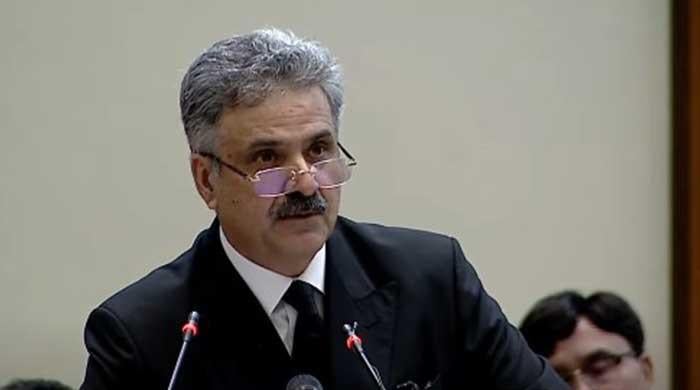Supreme Court to Implement AI for Case Scheduling
The Chief Justice of Pakistan (CJP), Justice Yahya Afridi, has revealed upcoming plans for the Supreme Court to utilize artificial intelligence in scheduling cases. However, he also noted the judiciary’s preparedness for immediate deployment is still in progress.
During the Judicial Conference held in Islamabad on Monday, Justice Afridi addressed Supreme Court and high court justices, Attorney General for Pakistan (AGP) Mansoor Usman Awan, and representatives from the Pakistan Bar Council and Supreme Court Bar Association. He emphasized that the new judicial year holds substantive importance beyond mere formality.
“The purpose of this ceremony is to evaluate our performance,” he stated, mentioning that this practice originated in the 1970s and has been consistently observed since 2004.
He asserted that judicial system transparency is key to ensuring justice. He also highlighted the importance of efficient case resolution and technology-driven enhancements as central to his vision for a streamlined judiciary.
Justice Afridi noted that upon taking office, he identified the need for changes and initiated reforms based on five fundamental principles. “We gave priority to technology for enhanced service delivery, case transparency, and a stronger legal framework,” he explained, adding that case management systems were implemented to expedite case resolutions.
He shared that the Supreme Court is transitioning to a paperless environment. “Online access has already been enabled for case registration, records, and judgement copies. The court aims to operate through a comprehensive digital platform,” he confirmed. “E-services have been introduced, with a facilitation center scheduled to be fully operational on October 1 to assist litigants.”
The Chief Justice disclosed that the Supreme Judicial Council (SJC) has adjudicated 64 complaints against judges, while 72 are currently being reviewed, and 65 cases remain pending. “The remaining cases will be assigned to judges by the end of the month. We are adhering to a first-come, first-served approach and will not prioritize cases from the bottom,” he clarified.
Underscoring the role of technology, he said: “There is widespread discussion about technology and artificial intelligence. We are digitally archiving 61,000 files, with project completion expected within six months. AI will be used for case scheduling, although we are not yet fully equipped for its immediate application.”
Justice Afridi reported that internal audit processes have been concluded, and proposed regulations have been distributed to judges for their input. “We have scheduled a full court session to examine the rules. Members with objections should submit them in writing for appropriate consideration,” he added.
He further clarified regulations pertaining to judges’ leave, stating that no permission is needed during judicial vacations, but advance notice is mandatory outside of public holidays.
Addressing security protocols, the Chief Justice commented: “Security measures for myself and other judges have been scaled down. Protocol within the Red Zone has been reduced. Judges may need security outside Islamabad, but not inside the Red Zone.” He mentioned reducing his security detail from nine vehicles to just two.
Justice Afridi stressed that he has toured distant regions to assess the judicial system and has directed that concerns across the entire judiciary nationwide be addressed. He announced that the National Judicial Policymaking Committee (NJPC) will convene on October 17 to discuss critical matters, including cases of missing persons.
Pakistan Bar Council Vice Chairman Tahir Nasrullah commended Chief Justice Afridi in his speech, acknowledging recent initiatives aimed at aiding litigants, such as providing internet and solar power in remote areas and facilitating practical video link hearings.
He also pointed out a reduction in pending Supreme Court cases and voiced optimism for increased access to justice at the district court level.
Supreme Court Bar Association President Rauf Atta applauded the Chief Justice for introducing a fresh vision for the Supreme Court, citing accomplishments like electronic filing, video link hearings, and the establishment of a facilitation center.
He acknowledged the court’s continued operations during summer recess, while also expressing concerns about delays in case scheduling and requesting additional measures to simplify the process for litigants.
Attorney General Mansoor Usman Awan stated in his remarks that delivering justice remains the judiciary’s highest priority and that upholding the Constitution and law guarantees transparency.
He welcomed the decrease in pending cases from the prior year and praised the Supreme Court justices and staff. He also endorsed the integration of technology and artificial intelligence to improve judicial effectiveness.



Comments (0)
No comments yet. Be the first to comment!
Leave a Comment